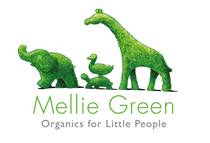Whether we are buying for ourselves or our children what we choose to buy and wear is more important now than ever before.
The rise of fast fashion has meant that the fashion industry, which was once divided into two seasons, Autumn Winter and Spring Summer has now been further divided into 52 micro seasons. With new clothes put on the mannequins each week showcasing the “latest” cuts, colours and slogans we as consumers we cannot help but be influenced into thinking that this is the way we are supposed to shop and live. This throwaway culture has resulted in the socially acceptable behaviour of people expressly buying outfits to wear once on a night out for it to be thrown away with the post night-out takeaway containers the morning after. Our health, our environment and our self worth cannot take this constant assault from the big businesses of fast fashion. Fortunately the slow fashion movement is gaining traction and we want to tell you what you are investing in when switching to slow and organic fashion.
- Higher Quality
When you buy an organic ethically made piece of clothing you will be buying a piece of clothing that is made with both higher quality materials as well as made to a higher standard. As a consumer this means you will be getting more bang for your buck …or in this case more wears for your pound. Higher quality textiles will mean your piece will wash better (as long as you follow the labels’ washing directions) and one that doesn’t bobble or fade is a piece you will wear more.
And it’s not just about the first wearer; the pre-loved clothing community is growing and a good quality piece has a much higher chance of being passed on. Unlike conventional cotton, organic cotton lasts longer. For example, instead of having to buy a new set of baby sleepsuits every month, one good quality sleepsuit could be worn by several babies and will last through years of wear. This is because organic cotton's resilient fibres have not been damaged by chemicals during the growing and weaving process.
Whilst higher quality comes at an (initial) slightly higher financial cost, between the higher quality and the stand out, unique designs offered by ethical brands these pieces are much more likely to be passed on. Whether passed on to families and friends fostering a sense of community of the pass-me-down customs of previous generations, given to charity shops meaning the next buyer gets a bargain or even sold on via places such as EBay, Facebook Marketplace. This is good for the purse, good for the community and good for the environment by keeping clothes out of landfill.
- Ethical Supply Chain
It is a seemingly simple question "who made my clothes?" and yet the Fashion Revolution’s latest Report reiterates that the complexities and harsh realities of the fast fashion industry are still highlighted through their lack of transparency. Their inability or unwillingness to answer this most basic of questions is alarming. Research also shows that clothes are among the items most at risk of being produced through modern slavery in an industry where women make up a staggering 80 per cent of the global workforce.
Slow fashion means sustainable, often organic, and ethical supply chains. The smaller ethical brands often have shorter, and in turn, more transparent supply chains. Big believers in fair trade you know when buying you will also be supporting the notion that every worker deserves to be paid a fair days wage.
- Go Green, Green goes with Everything.
There are many environmental benefits to buying slow fashion. The environmental cost of fast fashion is just too high to be sustainable long term. Global textiles production emits around 1.2 billion tonnes of greenhouse gases annually, which is more than international flights and maritime shipping combined. To make matters worse, 73 per cent of the 53 million tonnes of fibres used to make clothes and textiles each year are burnt or sent to landfill, according to a Fashion Revolution’s report.
Swapping just some of your purchases to slow fashion pieces with longer lifespans means keeping clothes out of landfill and less chemicals being emitted into the environment.
- Skin Health
Choosing organic is no longer just about your fruit and vegetables. The fashion industry has a significant impact on the environment as well as our skin, and this includes the pesticides and chemicals used to create our textiles.
Organic cotton in particular is gentle and kinder to a skin. As the material is soft and free from chemicals, there is less of a chance of children developing skin conditions such as eczema, dermatitis and skin allergies.As organic cotton always keeps its natural state, it makes it mould resistant and antimicrobial too.
What more excuse do you need, longer lasting, softer products with a better environmental impact. What's your favourite reason for going slow?

